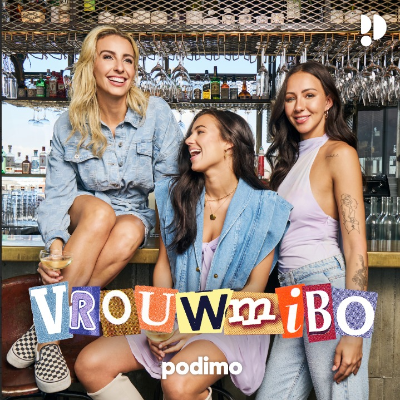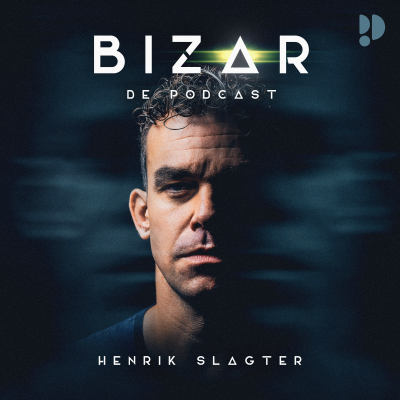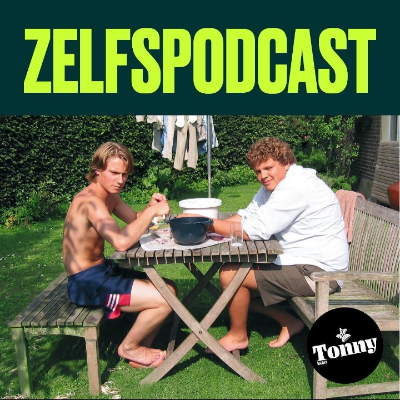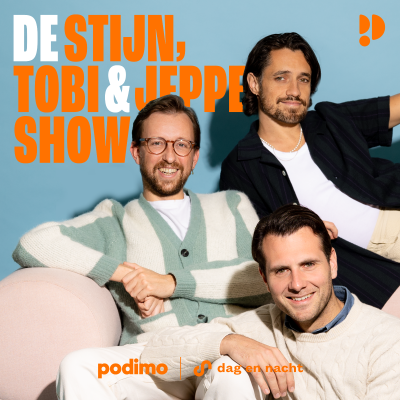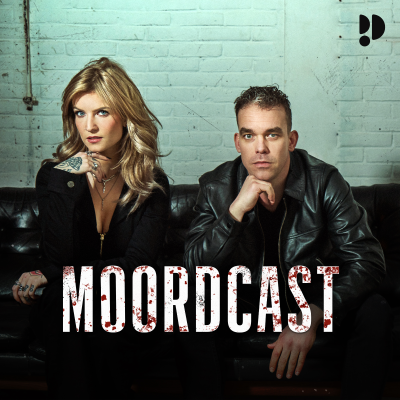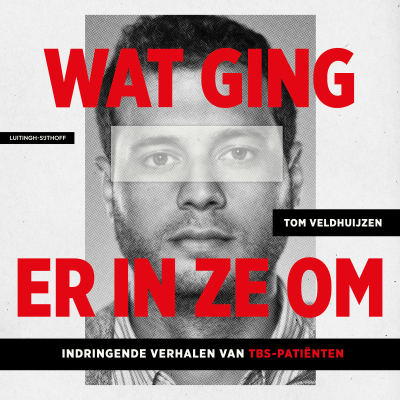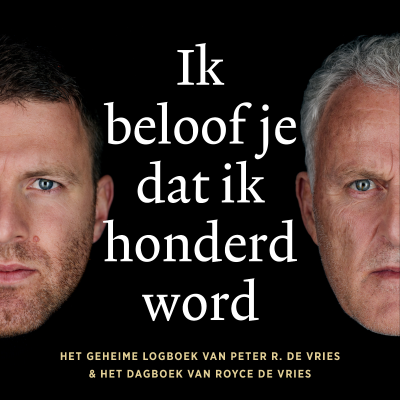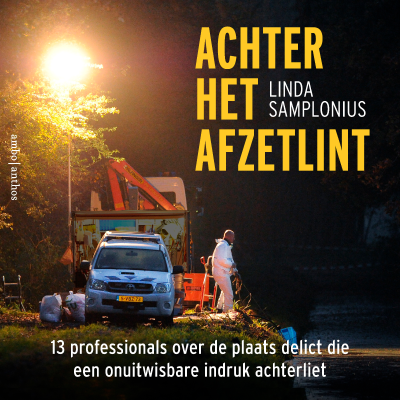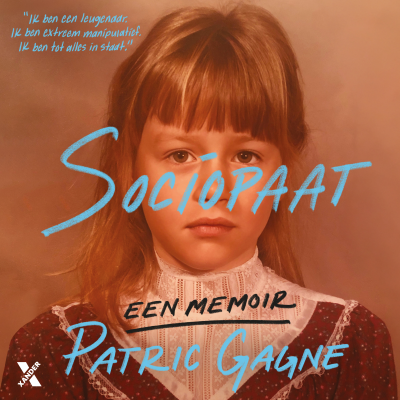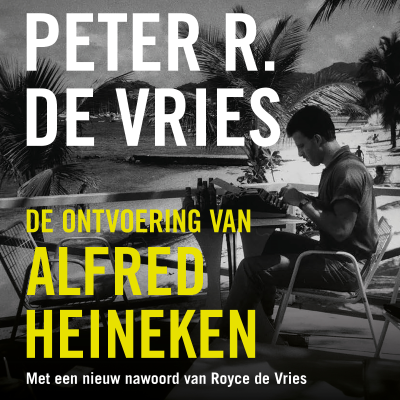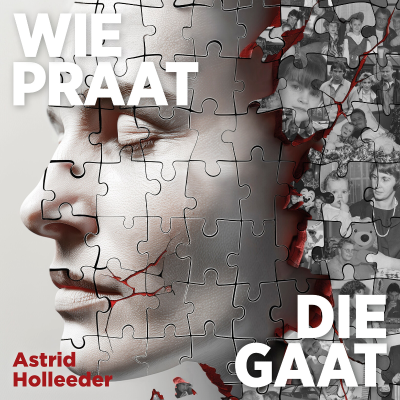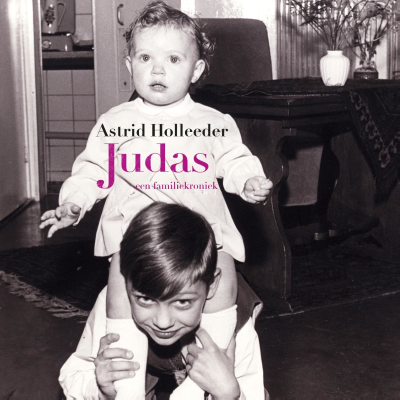The Slang Podcast - Learn British English Now
Podcast door The Slang Podcast
An exploration of British slang for English learners, native speakers and anyone in between. Giving you a chance to hear, understand the origins and meanings of new slang and to use it immediately!Become a supporter of this podcast: https://www.spreaker.com/podcast/the-slang-podcast-learn-british-english-now--4117941/support.
Probeer 7 dagen gratis
€ 9,99 / maand na proefperiode.Elk moment opzegbaar.
Alle afleveringen
39 afleveringenToday we will be exploring our third, Christmas topic, my favourite, Christmas food. So let’s get started... Many countries have their own special ways of celebrating Christmas, all usually concerning special types of food. As the world globalises we have begun to create new traditions and to share old ones. Nevertheless, there are a few special dishes that will almost certainly remain forever British. There are many, but we will be only exploring three today. Ok so the first is Figgy Pudding F-I-G-G-Y P-U-D-D-I-N-G or also known as christmas pudding which is a dessert often served after a large Christmas meal. It is made months or sometimes a year in advance of serving. It contains fruit, alcohol and suet. Today’s Christmas pudding is derived from "frumenty" created in medieval England in the 14th Century. It was a porridge-like mixture of beef, mutton, dried fruits, wines and spices; no surprise it is not so popular today. Nowadays the desert is usually served with a decorative sprig of holly on the top of the pudding as a reminder of Jesus' Crown of Thorns that he wore when he was killed. Brandy or another alcoholic drink is poured over the pudding and set alight at the table creating a beautiful fire. Historically this is said to represent Jesus' love and power. However even non religious brits are known to follow this serving tradition. Ok so we brits have many other special deserts, another are mince pies M-I-N-C-E P-I-E-S. A mince pie is a small British fruit-based sweet pie traditionally served during the Christmas season. Its ingredients are traceable to the 13th century, when returning European crusaders brought with them Middle Eastern recipes containing meats, fruits and spices. Now it’s a popular treat during Christmas. Historically they contained actual meat but nowadays we only use sweet ingredients- I promise you a cup of mulled wine, which is warm spiced wine and a mince pie and is an absolutely delicious Christmas tradition. The last of the special Christmas dishes I want to tell you about are pigs in blankets, my absolute favorite! And yes their name describes them perfectly, they contain pork! Both the USA and the UK have them, both with different interpretations. In the USA , pigs in blankets are small sausages wrapped in croissant rolls. In the UK however, the ‘blanket’ is bacon and they are the perfect match with a roast turkey and roasted potatoes. So have you tried any of these traditional foods? Or are you planning on doing so soon? Let us know! That's our episode of the day, remember to tune into our final Christmas episode on Wednesday, where we will be exploring Christmas day traditions. You can find us on our website https://theslangpodcast.com and from there you can see our transcript and subscribe on Apple Podcasts, Spotify and many more apps. Or head over to our facebook page https://facebook.com/theslangpodcast for updates and more slang! Let’s catch up on Christmas day! This Wednesday. Remember to tune in for our very merry episode! Become a supporter of this podcast: https://www.spreaker.com/podcast/the-slang-podcast-learn-british-english-now--4117941/support [https://www.spreaker.com/podcast/the-slang-podcast-learn-british-english-now--4117941/support].
We all have our own special way of celebrating Christmas, whether its spending all day socialising with friends or simply curling up by the fireplace all day. Today I want to tell you about what British people think the ‘must do’s’ of Christmas day are. To begin with an iconic tradition is THE QUEEN’S SPEECH. On Christmas day at 3pm, most of the nation stops opening presents and eating turkey to hear a special Christmas message from The Queen. It is a tradition that started in 1952 on BBC radio one . The message is recorded in advance and is usually short. It includes Queen reflecting on the past year and wishing everyone Happy Christmas. Ok number two of our top traditions Crackers C-R-A-C-K-E-R-S... a strange tradition indeed. I currently live in Italy and my endless search for crackers is infuriating- they simply don't exsists in most other countries apart from the UK! So what are they? Basically they’re cardboard tubes that have gunpowder in them and they make a cracking sound when you pull them apart. Once pulled you can find small toys n them, a paper crown to be awkwardly warn during the Christmas meal and a silly joke to read to the people around you. They are always opened before the Christmas meal and enjoyed during. They are a senseless tradition but a tradition nonetheless, so if you are at a British meal and you see a cracker just pull it and see. Ok so last and maybe the most strange traditions is the pantomime spelt P-A-N-T-O-M-I-M-E. I know what your thinking.. Hey isn't a pantomime a street performer usually found lerking on the streets of Paris? No! In fact this is a fantastic British tradition that is pretty difficult tp explain to non-Brits. A pantomime or "Panto", as it is sometimes referred to is basically a play seen at Christmas time. The show is usually not Christmas related but based of a fairytale, interjected with modern day humour, for example referring todays politics or social climate. The play usually includes songs, slapstick comedy and dancing and always includes a dame ‘DAME’ who is a gender-crossing actor. It includes lots of audience participation and children usually leave the show with lots of free sweets, that are handed out during the performance. Over years the "panto" has developed a set of expected conventions including: a cheery song with which the audience join in, double entendre and the phrases, ‘It’s behind you!’ and ‘Oh no you didn’t!’ The show usually includes a celebrity from a soap opera or film, this really draws in the crowds. It is one of the oldest Christmas traditions and was developed from the Italian street theatre of the Commedia dell'Arte in the 16th Century. Going to the pantomime with your whole family is a yearly tradition for many brits- so if you ever happen to find yourself in the Uk over Christmas its definetly worth a watch! I promise you will understand British culture a lot more after doing so... So there are all our top Christmas traditions! Which one sounds the best to you? That's our final Christmas episode, but do not worry! We will be back on Monday to give you a new dose of slang! You can find us on our website https://theslangpodcast.com and from there you can see our transcript and subscribe on Apple Podcasts, Spotify and many more apps. Or head over to our facebook page https://facebook.com/theslangpodcast for updates and more slang! So where ever you are and what are you are doing, from all of the slang podcast, we wish you a very merry Christmas! Become a supporter of this podcast: https://www.spreaker.com/podcast/the-slang-podcast-learn-british-english-now--4117941/support [https://www.spreaker.com/podcast/the-slang-podcast-learn-british-english-now--4117941/support?utm_source=rss&utm_medium=rss&utm_campaign=rss].
Hello and welcome back to a very special episode of Slang with me Louisa May Adams. This show will give you the chance to hear, understand the origins and meanings of new slang and to use it immediately! Today we will be exploring our second Christmas topic, days and celebrations. So let’s get started... The first is obvious, Christmas day on the 25th of December, celebrated by the majority of the world, for both religious and personal reasons. The next few important days in the winter British calendar are less widespread, so lets look at them now... An important day for brits in winter is boxing day B-O-X-I-N-G D-A-Y. Boxing Day is a holiday that's the day after Christmas, the 26th of December. Boxing Day dates back to the 17th century. Historically known as when servants and tradesmen would receive gifts, known as a "Christmas box", from their bosses or employers. However it hasn't been like this for a long time. Today it is viewed as just another "Bank Holiday" which means most people get the day off work. Nowadays people spend boxing day having a special lunch made from leftovers from the Christmas feast the day before. In Britain it is usually composed of eating, going on long walks in the country and generally relaxing with family and friends. Another celebration to write in your British diary is Twelfth Night, T-W-E-L-F-T-H N-I-G-H-T. I know what you are thinking... hey isn't that one of Shakespeare's plays? In fact Shakespeare's play is named after the celebration because it was first performed at this festival. Twelfth Night is a religious festival commemorating the coming of the Epiphany, the day when the nativity story tells us that the three wise men visited the baby Jesus. There are different opinions of when this festival is celebrated, depending on which day one considers to be the first of the Twelve Days: 25 or 26 December. The Church of England celebrates Twelfth Night on January 5th. For those less religious twelfth night is the unofficial end of the holiday season, meaning people begin to take down their Christmas trees and decorations and start go back to work! How depressing! A modern day belief is that it is unlucky to leave Christmas decorations hanging after Twelfth Night. The final I want to tell you about is hogmanay H-O-G-M-A-N-A-Y Aka Scottish New Year’s. Hogmanay is the Scot word for the last day of the year and is synonymous with the celebration of the New Year. It is normally followed by a further celebration on the morning of New Year’s Day (1 January) or, in some cases, 2 January, a special Scottish Bank Holiday. New Year's Eve is a global tradition but in Scotland they say good bye to the old year and welcome to new one slightly differently to the rest of the world. The origins of Hogmanay are unclear, but may be derived from Norse and Gaelic observances. Traditionally on Hogmanay Scots follow many customs, including gift-giving and visiting the homes of friends and neighbours. . On Hogmanay Scots eat haggis, a savoury pudding made from sheeps lung, heart and liver. Ok I know this sounds disgusting but it is in fact very delicious! The second Hogmanay iconic tradition is singing the song "Auld Lang Syne" which has become common in many countries. "Auld Lang Syne" is a Scots poem by Robert Burns. It is now common to sing in a circle with friends and family while linking arms as the clock strikes midnight for New Year's Day. Although not Scottish i know my mother enjoys doing this very much so! So which will you be celebrating this year? Hogmanay, Twelfth Night or Boxing Day? Have a think and let us know! That's our episode of the day, remember this is the second of four Christmas specials so tune in on Monday to hear about traditional British Christmas food. You can find us on our website https://theslangpodcast.com and from there you can see our transcript and subscribe on Apple Podcasts, Spotify and many more apps. Or head over to our facebook page https://www.facebook.com/theslangpodcast for updates and more slang! Become a supporter of this podcast: https://www.spreaker.com/podcast/the-slang-podcast-learn-british-english-now--4117941/support [https://www.spreaker.com/podcast/the-slang-podcast-learn-british-english-now--4117941/support?utm_source=rss&utm_medium=rss&utm_campaign=rss].
For the next two weeks every episode is dedicated to British Christmas slang.Today we will be starting with different words for the winter season. So let’s get started. Christmas is a time for friends, food and fun but if you are in a non native English speaker, enjoying all three of these things may be a challenge if you don’t know how to express yourself! To start off, Brits have found a way of making just the word Christmas confusing: - Xmas - Chrimbo - Yule! Which is correct and what do they mean? You may have heard Christmas, but perhaps not xmas X-M-A-S. In fact Xmas does not come from British people being lazy and when spelling Christmas but in fact, in Greek, the letter X or Chi is the first letter of the word for "Christ". The suffix "mas" is from the Latin-derived Old English word for Mass. Both Christmas and Xmas have the most religious connotations out of all the words used in this season. So where do "Chrimbo" and "Yule" fit in? "Yule" Y-U-L-E is the pagan celebration of the winter solstice and has been around much longer than father Christmas and Rudolph . Yule celebrations were first recorded in 1475. The Yuletide season lasts from the end of November to the beginning weeks of January. Yule celebrations include traditions like mistletoe and decorating trees, traditions we still use today. So in fact Christmas hijacked many of these traditions. Chrimbo spelt C-H-R-I-M-B-O is much more modern and was first used in 1929. Today it symbolizes the more commercial side of Christmas. John Lennon also used the version Crimble C-R-I-M-B-L-E in the Beatles' song about Christmas, titled "Happy Crimble". Ok so now we know how to refer to Christmas, but on these days how to we great each other? Here are some options for you.. We can say: - "Merry Christmas!" - "Happy Christmas!" - "Winter wishes!" - Or "seasons greetings!" So have a think, this year are you celebrating Chrimbo, Christmas, Yule or Xmas? That's our episode of the day, remember this is the first of four Christmas Specials so tune in on Wednesday to hear about British winter holidays and celebrations. You can find us on our website https://theslangpodcast.com and from there you can see our transcript and subscribe on Apple Podcasts, Spotify and many more apps. Or head over to our facebook page https://www.facebook.com/theslangpodcast for updates and more slang! Become a supporter of this podcast: https://www.spreaker.com/podcast/the-slang-podcast-learn-british-english-now--4117941/support [https://www.spreaker.com/podcast/the-slang-podcast-learn-british-english-now--4117941/support?utm_source=rss&utm_medium=rss&utm_campaign=rss].
One of my friends is a musician and he is performing at his first concert tomorrow! This morning I saw him for a coffee and said: Looking at me with confusion and fear he repeated: * Break a leg? Why on earth would I want that You may be as confused as he was, so let's explore this slang phrase... To clarify I am not wishing him bad luck! The opposite actually. This idiom "to break a leg" has in fact positive connotations, strange as it seems. So where does this strange idiom come from and when do we use it? Now there are many claimed reasons for the existence of this phrase, usually involving connotations with the theatre. "Break a leg" earliest written evidence can be found in Bernard Sobel's 1948 Theatre Handbook in which Sobel explains that actors never said "Good luck," only "I hope you break a leg." It has been suggested that wishing someone to "break a leg" dates back as far as Ancient Greek Theatre. After watching ancient greek audiences would stomp their feet to express their praise for a play, rather like how we clap and applaud now. By wishing an actor to "break a leg", they hoped that the show would be such a hit that a member of the audience would stomp so hard that they literally may break their own leg, showing that the play was a total success! However this is only one theory, our second stems from ancient superstition, that when you want something to be a success you must wish for the opposite. For an actor on opening night it could be argued that the worst thing to happen would be to break a leg, so wishing for it may in fact insure it is avoided! Nowadays we can use this term not just concerning luck in the theatre but in general, for example: * Hope you break a leg at your job interview! or * Break a leg on the English test today! So when do you next need to break a leg? A job interview? An English exam? Let us know! That's the end of our episode so remember to tune in for our next episode to see what new slang we have in store for you! You can find us on our website [https://theslangpodcast.com] and from there you can see our transcript and subscribe on Apple Podcasts, Spotify and many more apps. Or head over to our facebook page https://facebook.com/theslangpodcast [https://facebook.com/theslangpodcast] or instagram for updates and more slang! Become a supporter of this podcast: https://www.spreaker.com/podcast/the-slang-podcast-learn-british-english-now--4117941/support [https://www.spreaker.com/podcast/the-slang-podcast-learn-british-english-now--4117941/support?utm_source=rss&utm_medium=rss&utm_campaign=rss].
Probeer 7 dagen gratis
€ 9,99 / maand na proefperiode.Elk moment opzegbaar.
Exclusieve podcasts
Advertentievrij
Gratis podcasts
Luisterboeken
20 uur / maand
